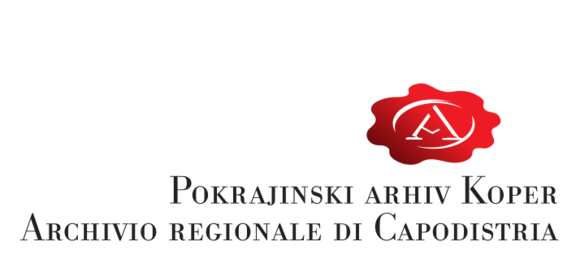Difference between revisions of "Regional Archives Koper"
Janez Premk (talk | contribs) |
Janez Premk (talk | contribs) |
||
| Line 27: | Line 27: | ||
== History == | == History == | ||
The emergence of the Koper archives as specific cultural institution is associated with the former city library. Its beginnings date back to 1868. When the library won places in the city hall in 1900, the archives gradually increased. In 1925 the city library and archives moved in Tacco palace, which already housed the local museum. | The emergence of the Koper archives as specific cultural institution is associated with the former city library. Its beginnings date back to 1868. When the library won places in the city hall in 1900, the archives gradually increased. In 1925 the city library and archives moved in Tacco palace, which already housed the local museum. | ||
| − | In 1944 the Commission for the protection of cultural and artistic monuments sent away almost the entire material from the archives of the old municipality of Koper, dating until 1800, and general records from 1800 to 1840. Materials were taken to Trieste and then to Venice, where they are still located today. At the initiative of the Historical Society of Koper in 1953 Archives separated from the city library. The City Archives Koper were founded three years later. In 1967 they were renamed to Regional Archives Koper and became an autonomous unit. Its [[Piran Unit]] was established in 1974. | + | In 1944 the Commission for the protection of cultural and artistic monuments sent away almost the entire material from the archives of the old municipality of Koper, dating until 1800, and general records from 1800 to 1840. Materials were taken to Trieste and then to Venice, where they are still located today. At the initiative of the Historical Society of Koper in 1953 Archives got separated from the city library. The City Archives Koper were founded three years later. In 1967 they were renamed to Regional Archives Koper and became an autonomous unit. Its [[Piran Unit]] was established in 1974. |
== Programme / mission == | == Programme / mission == | ||
Revision as of 23:43, 14 December 2009
History
The emergence of the Koper archives as specific cultural institution is associated with the former city library. Its beginnings date back to 1868. When the library won places in the city hall in 1900, the archives gradually increased. In 1925 the city library and archives moved in Tacco palace, which already housed the local museum. In 1944 the Commission for the protection of cultural and artistic monuments sent away almost the entire material from the archives of the old municipality of Koper, dating until 1800, and general records from 1800 to 1840. Materials were taken to Trieste and then to Venice, where they are still located today. At the initiative of the Historical Society of Koper in 1953 Archives got separated from the city library. The City Archives Koper were founded three years later. In 1967 they were renamed to Regional Archives Koper and became an autonomous unit. Its Piran Unit was established in 1974.
Programme / mission
The archives preserve around 5,000 linear metres of archival records, ranging from the oldest documents, which come from Piran Municipality and date from the Venetian Republic period of the mid 12th century, to the period of the Republic of Slovenia from 1991 onwards. Some records which should be kept at the Regional Archives of Koper are in fact located in Ljubljana, Trieste, Venice, Udine, Rome, Rijeka, Pazin and Belgrade. Digitisation of records has been ongoing since 1994.
The library of the Regional Archives contains around 4,600 books, and the entrance area offers space for small exhibitions.
Venues / branches
Its remit includes the following state administrative units (territorial divisions other than municipalities used in state governance): Ilirska Bistrica, Izola, Koper, Piran, Postojna and Sežana.
International cooperation
The Regional Archives of Koper has co-operated with the archives of the Republic of Croatia and the National Archives of Italy on various international projects relating to culture and digitisation, which are funded by the EU and the Republic of Slovenia.



